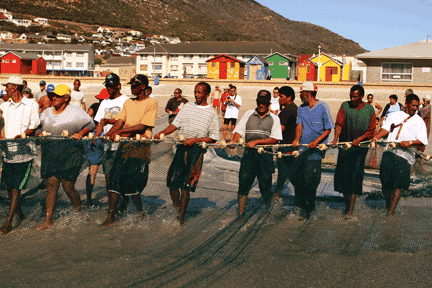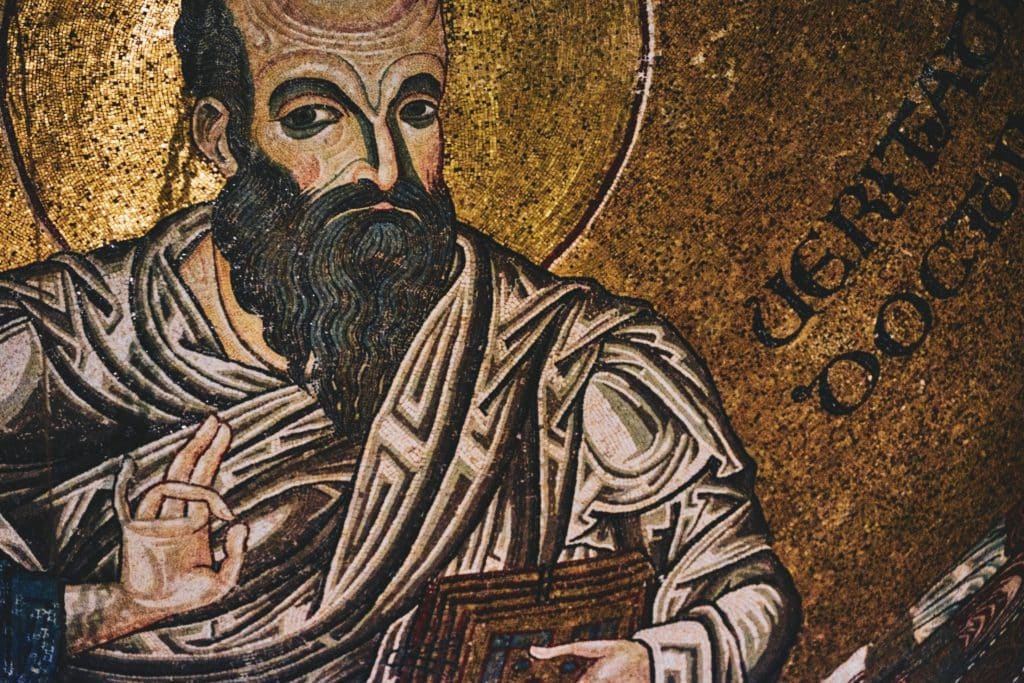Short-term Mission Partnerships: Lessons from Paul and the Philippians

by Daniel Rickett
In recent years, much has been said about the good and the bad of short-term missions. Short-term missions have been around long enough to have history. In that history, there is as much to be ashamed of as there is to celebrate.
In recent years, much has been said about the good and the bad of short-term missions. Short-term missions have been around long enough to have history. In that history, there is as much to be ashamed of as there is to celebrate.
But we are learning. We are learning what’s right and what’s wrong with making short trips on a mission that requires a long obedience.
Looking back, we now know that short-term missions are a consequence of globalization—a product of wealth, freedom, mobility, and Global Christianity. But something deeper is drawing us out. Something more powerful than globalization has given rise to short-term missions. We find it tucked away in Paul’s letter to the church in Philippi.
First, however, there is something you need to know about me. It turns out, I have been a short-term missionary my entire career spanning thirty-five years. The first hint of that deep tug came long before I knew what it was. It started when my wife, Michele, and I visited a tiny church in Michigan where we met a man from India. Rev. John told of his ministry in India, the orphans he cared for, the school for Christian workers, and the churches he had planted. He was not a particularly impressive man, except he seemed to be as spiritually rich as he was materially poor.
We forgot about John until months later when we received a letter. He explained his son’s desire to go to Bible college and asked for help. Two years later, we had gathered enough money to bring the young man to the U.S. and enroll him in college. Unfortunately, our intentions were pure but our plan was flawed. The young man was not prepared for Bible college. He returned home within two years without completing his studies.
It was a crushing disappointment. We had sacrificed a lot and did our best to act in brotherly love, but it all came apart and everyone got hurt.
But I’m getting ahead of the story. Let me back up. We were in Bible college at the time. We were learning to do whatever Jesus said and we knew he said, “Love one another.” It only seemed right that if we could go to Bible college then our brothers and sisters in Christ ought to have the same opportunity. With the help of classmates, we launched a ministry to provide scholarships for international students.
It was during that time that we became increasingly aware of the enormous scope and diversity of Global Christianity. We discovered that countless brothers and sisters in Christ live under extreme conditions and nearby peoples yet unreached with the good news.
After college one late and very dark night, God crystallized it for me in a vision. I stood at the end of a long dock on the Gulf of Mexico. Several islands created a barrier between me and the open water. I could not distinguish where water ended and land began. But I could see lights in the distance. On one end of the horizon, the lights of a bridge to the islands shined like stars leading to a cluster of lights. As I scanned from left to right, the band of lights dwindled to a few lights in the darkness. Beyond them the horizon was completely dark save for a single red blinking light.
I knew immediately I was looking at an image of the world today where the light of Christ does not shine and fellow Christians stand alone. I fell to my knees and wept for those in darkness and our brothers and sisters in Christ who suffer for his name. Since that day, I have ordered my life to serve the servants of God in the hard places.
What compelled me then compels short-term missions today. It is this: we who believe in Jesus are citizens of heaven on earth. It is our heavenly citizenship that draws us out and draws us together. In Christ, we have the same identity, we love the same things, and we’re all in the same struggle—to live like citizens of heaven on earth.
Showing up, working together, and partnering in the gospel is not merely a strategy or method of mission. It’s part of who we are in Christ. It’s an expression of our new citizenship. It is in our character—the new character we are receiving—to have the same purpose, love the same things, and serve with self-sacrificing humility and love. Standing together and working together is woven into the fabric of our new identity. It’s who we are now, or more accurately, who we are becoming.
Are you getting it? This is living as citizens of heaven on earth. Or it can be. It can be if we follow the example of Paul and his dear friends in Philippi. When we study Paul’s relationship with the church of Philippi, we discover a lot about how to live as citizens of heaven on earth.
What did they have together? Among all of the churches Paul started, what made this relationship an example worth following? Some say that Paul’s relationship with the church of Philippi doesn’t provide a model for mission partnerships. But what does it matter? Model or not, Paul’s relationship with the church of Philippi is worth emulating not because of the similarity of circumstances with our day, but because of the basis of their fellowship in the gospel.
So what was it? What did they have together? Three points stand above all the others. As citizens of heaven on earth, Paul and the Philippians had the same passion, shared the same identity, and were all in the same struggle.
#1. Paul and the Christian believers in Philippi had the same passion: Christ and the gospel. Paul was all about the gospel. It was the singular passion of his life. To proclaim the gospel was to proclaim Christ. For Paul, Christ and the gospel were nearly interchangeable.
In the course of their relationship, the Philippians came to share Paul’s passion for the gospel. It was this passion that both defined and energized their mutual affection. It’s no wonder Paul loved them so dearly. They loved what he loved. They were with him in the furtherance of the gospel. They demonstrated it by sending him material help on more than one occasion and by living out the truth of the gospel in Philippi under difficult conditions.
Paul and the Philippians cared deeply about the progress of the gospel. This models for us that a passion for Christ and the gospel must be at the center of our short-term mission partnerships. Nothing else is strong enough to hold us together. Allow an ideal or a cause to eclipse the centrality of Christ in your relationship and it will eventually fall apart or fizzle out. Shared values are powerful. They bring people together and hold people together for a time. It’s not uncommon to see people rally around a cause.
In our broken world there are plenty of causes. End hunger. End poverty. End slavery. These are all important and noble causes. I am personally involved in fighting the global plague of abuse and exploitation of women and girls. Yet, as compelling as such causes are, human suffering is not the energy of the gospel. The energy of the gospel is that Christ is in it with us.
It all turns on Christ. Christ Jesus is not merely an ideal around which people may rally. He is the One anointed to put everything under his charge. He is the head of the Church. He lives and works in believers through the presence of the Holy Spirit. He is the source and means of the reconciling work of God in the world.
#2. Paul and the Philippians shared the same identity. They were fellow citizens with God’s people and members of his household (Eph. 2:19). Their names were written in heaven.
When the Philippians confessed Christ, it changed everything. They received a new family. Fellow Christians were now their new tribe, no matter their ethnic origin, social class, or former religion. They received a new way of life, a way of life characterized by love, joy, blamelessness, unity, selflessness, and humility. They received a new distinction, “the distinction between the righteous and the wicked, between those who serve God and those who do not” (Mal. 3:18).
In Christ, the Philippians became citizens of heaven on earth. As new citizens, however, they had much to learn and very little of their past prepared them for it. They had to learn to “set their hearts on things above, where Christ is, seated at the right hand of God” (Col. 3:1).
#3. Paul and the believers in Philippi were in the same struggle—to live like citizens of heaven on earth. In Christ, their citizenship had been transported from earth to heaven. But they were still on earth and unschooled in their new life. And so they struggled. They struggled within themselves, among themselves, and against those opposed to Christ and his gospel.
We find in Philippians the struggle for the progress of the gospel plays out in three dimensions: the personal level, the community level, and the global level. On the personal level, the struggle is to be fully conformed to Christ. It is the transforming work of God in the believer’s life whereby he or she is restored to the purpose God intended. And although it is a process begun in this life and completed at the resurrection, the struggle is to go all the way with Christ.
On the community level, the struggle is to experience the spiritual oneness that is already there in Christ. But just as the Philippians must learn to be conformed to Christ, so they must learn to maintain the unity that is produced by the Spirit. Such unity is the key to steadfastness in the face of adversity and the evidence of their heavenly citizenship.
On the global level, the struggle is to announce Jesus Christ, Lord and Savior, and all that follows the reign of God in human affairs. As the Bible says, “He has shown you, O mortal, what is good. And what does the Lord require of you? To act justly and to love mercy and to walk humbly with your God” (Micah 6:8).
In the face of all these struggles, Paul had one thing to say to the Philippians: “Whatever happens, conduct yourselves in a manner worthy of the gospel of Christ” (1:27).
I have two daughters. They are adults now and precious to me. All their lives I have urged them to abide in Christ and walk in the Spirit. And whatever happens, I’ll know they are okay. I’ll know they have the peace that transcends understanding and the strength to live with joy.
This was Paul’s fervent appeal to the Philippians. He cared deeply for them. He wanted the best for them. So he packed it all in a single line, something they could easily remember: “Walk in a manner worthy of the gospel of Christ.” Only in this way will they live as citizens of heaven on earth.
A Different Paradigm
Paul’s relationship with the church of Philippi calls for a different paradigm of short-term mission. It changes the way we envision and plan short-term missions. It changes our approach from a hodgepodge of unrelated trips to a series of intentional engagements with the same people in the same place. It changes our starting position from being givers to first being friends. It changes our orientation from being teachers and service providers to being companions in the gospel. It changes our methods from doing for others to accompanying others in living like citizens of heaven on earth. It changes the impression we leave from being tourists to being fellow citizens in the struggle to act justly, love mercy, and walk humbly with God (Micah 6:8).
What Must We Do?
Where do we go from here? I have seven ideas.
1. We must put the fellowship of the gospel at the center of our mission relationships. We do this by praying together, worshiping together, partaking of the Lord’s Supper together, encouraging one another in the faith, and supporting one another in the progress of the gospel in our personal lives, in the church, and in the world.
2. We must not think or work on a short-term scale. It takes time to understand the concerns and interests of others. It takes months of listening, learning, and building relationships in order to effectively enter into and share in the work of others.
3. We must stop presuming the lead role in cross-global ministry and instead recognize that the lead roles are played by the local Christians. If we presume to have the lead role, we won’t have partnering relationships, we’ll have paternal relationships. And we’ve already seen the debilitating consequences of paternalism.
4. We must give up the notion that the main goal of short-term missions is to find ourselves, develop our gifts, or make sense of life. These things may come, but to put them first is to put ourselves first and others second. In actual fact, we become conformed to Christ by practicing his example of self-sacrificing humility and love.
5. We must quit “moving on” when things go wrong and learn to stay put. The Philippians didn’t give up on Paul when it seemed to be going badly for him. Instead of pulling back, they stepped forward to get closer and join in Paul’s struggle. If we view relationships as disposable, it’s hard to have authentic partnership.
6. We must make global, globally adapted partnerships, standing firm in one Spirit, and striving together as one for the faith of the gospel. Just as the Holy Spirit’s presence is the key to unity in the local church, so his presence is the key to working together for the gospel in the Global Church.
7. We must understand that partnership in the gospel is not so much a method of Christian mission as it is an expression of our heavenly citizenship on earth. It is the nature, the new nature, of our unity in Christ to pursue the progress of the gospel together.
Paul’s letter to the Philippians informs us that partnership is above all fellowship in the gospel. But the letter does more than inform. It also demonstrates how to live as citizens of heaven on earth.
Everything we know about the “body life” of the local church applies to the Global Church. All over the world, brothers and sisters in Christ struggle against poverty, injustice, and opposition to the good news of Christ. But they don’t have to struggle alone. We have each other. We’re made for this. And now is the time.
….
Daniel Rickett is executive vice president of She Is Safe. He is author of Making Your Partnership Work (2002) and Building Strategic Relationships (2008). Additional articles and resources on partnership can be found at www.danielrickett.com.
EMQ Apr 2015, Vol. 51, No. 2 pp. 146-147. Copyright © 2015 Billy Graham Center for Evangelism. All rights reserved. Not to be reproduced or copied in any form without written permission from EMQ editors. For Reprint Permissions beyond personal use visit our STORE (here).



